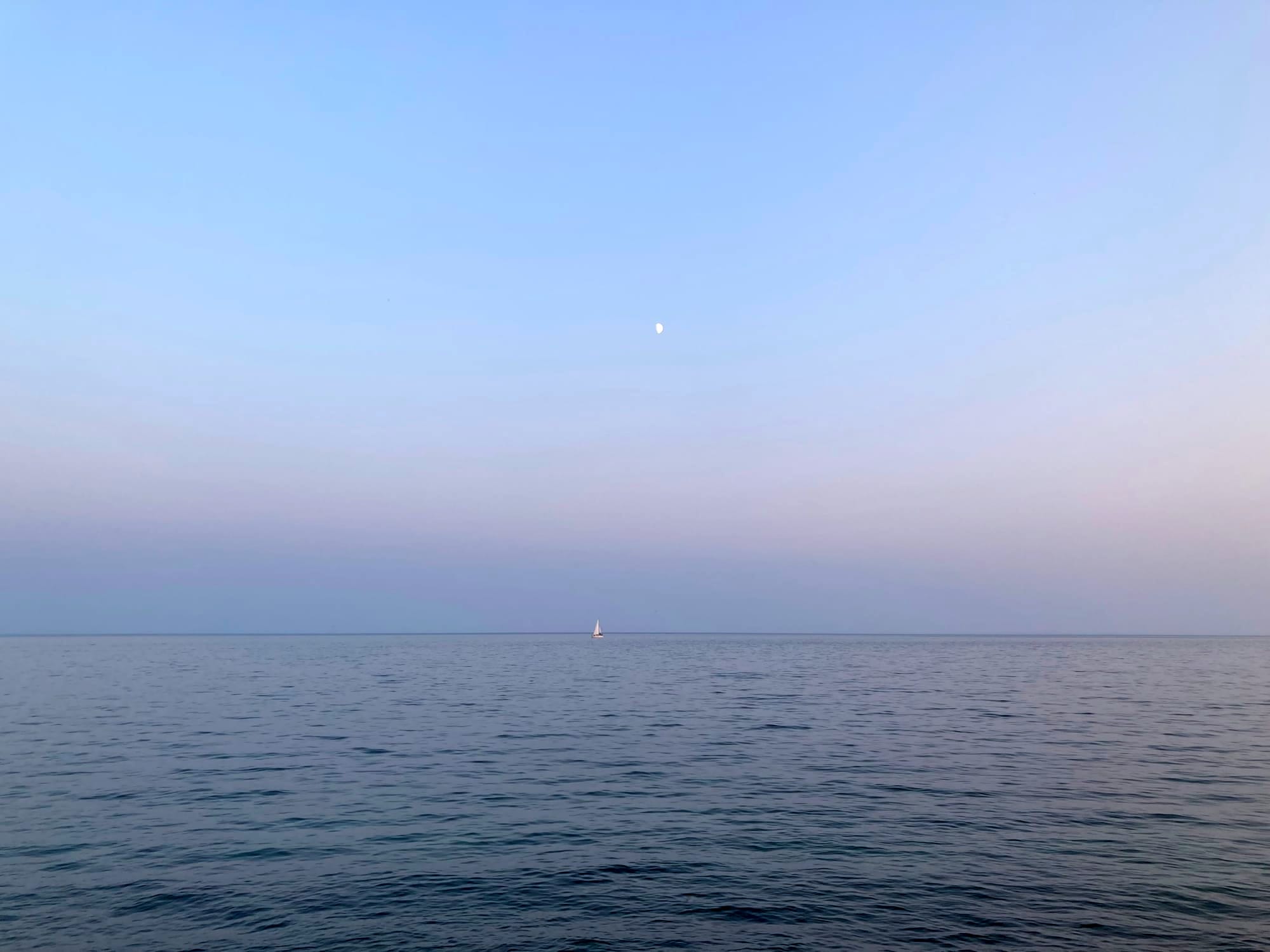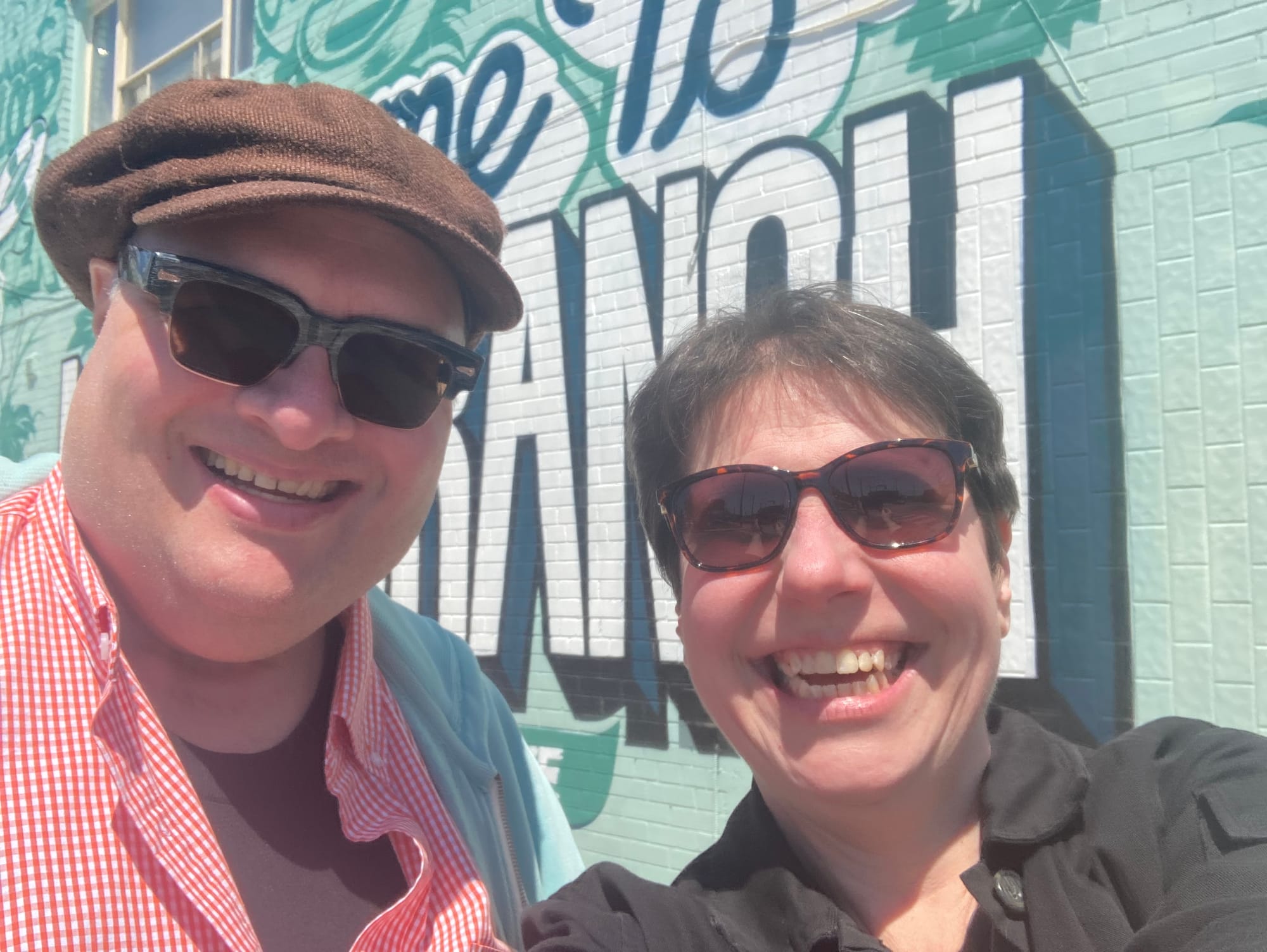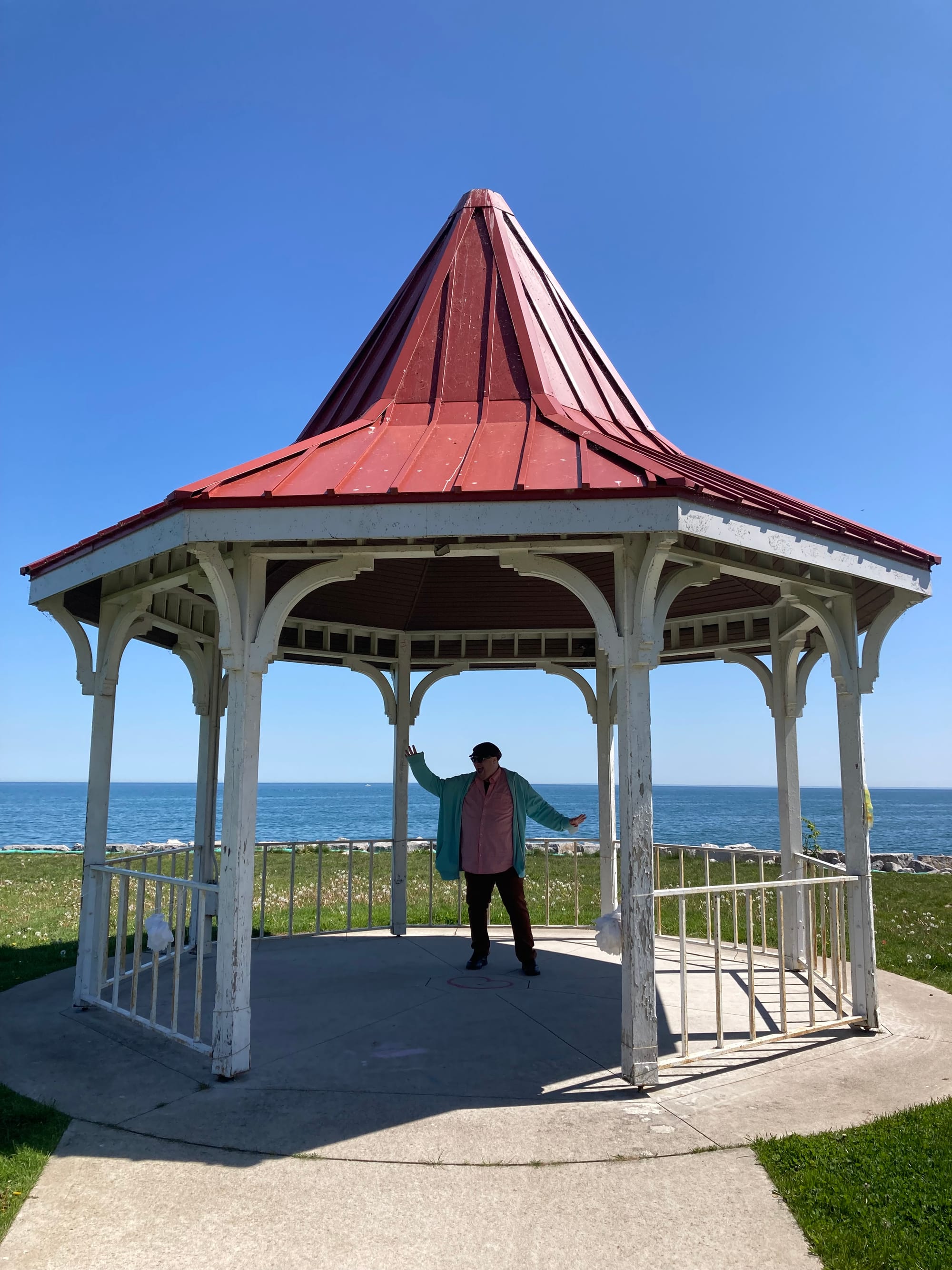About Jonathan Sterne
A memory, and a tribute.

Jonathan Sterne was my doctoral advisor at McGill University and supervised the dissertation I successfully defended in 2014. He was also a staunch supporter of two unionization drives I led at McGill and a regular reader of the blog I kept for several years, as I was of his. Above all, he was my friend, and I’m filled with sadness at the news of his passing earlier today due to the progression of the thyroid cancer he had lived with for many years. I want first to offer my sincerest condolences to his wide circle of colleagues, students, editors and friends, and especially to his intellectual and life partner of thirty-five years, Carrie Rentschler. I am so deeply sorry for your loss, which is incalculable.
As I sit with the news, I’m compelled to share a story about Jonathan, which will differ in tone from the scholarly accolades he will soon receive and richly deserves, but which speaks to his character as a person as well as an academic. It’s the story behind the photos I’ve shared here, which were taken in May of 2023. Jonathan was in Toronto for the ICA conference, one of those big deal, American-style juggernauts that communications scholars converge on to demonstrate their scholarly activity and, more so, to see widely dispersed friends. I was no longer working in academia by that point so I didn’t attend, and I didn’t feel comfortable going to the peripheral social gatherings I knew were being planned, despite the chance it offered to see former colleagues I hadn’t heard from since the first, awful wave of the COVID-19 pandemic. I wasn’t one of them anymore.

Instead, Jonathan came to me. On an improbably sunny spring afternoon, he ditched ICA and took a long Uber ride to South Etobicoke, where I now live in an artists’ housing co-operative. We met for lunch at a vegetarian restaurant in Long Branch, which we had all to ourselves, and we talked for hours: about our lives, our health, and different facets of the work that had first connected us at McGill. When we finished our lunches and coffee it was clear that we both wanted to continue our conversation, so I proposed a short walk to the lake, just a few blocks away, which is one of the best things about the neighbourhood I live in.
A note about the word “just.” Walking is now difficult for me, even with the use of an assistive device, because of a neurological movement disorder I’ve had for years but was only diagnosed with in late 2024. Because of this, I avoid walking with other people, especially academics, who as a group are neither renowned for their patience nor their proprioception. But Jonathan matched my pace exactly, treating my frequent pauses to rest as conversational accents and never once rushing ahead of me, even after we took a wrong turn down a winding road and nearly got lost. This instinctive responsiveness came, in part, from his understanding of the lived experience of disability, which his scholarship took a sharper turn toward when he acquired his own. But it was also because he was a musician, who knew in his bones how to navigate time and movement relationally. The way Jonathan was with other people, and with me that day, was ethically and effortlessly musical.

When we finally reached the lake, he eagerly posed for pictures at the gazebo in Long Branch Park before we settled in on a bench for another hour or so of conversation. Looking back, I realize how lucky I was to have had this time with him in the all too brief interval between the pandemic and his passing, and to know that my ideas and work still mattered to him, despite my never getting past the campus interview stage for a tenure-track position—and, I will add, not once receiving the accommodations I requested for those interviews in advance.
This is now, probably, too much about me, but Jonathan was an OG blogger—which is to say, a memoirist—and a fiercely political one, so I don't think he'd mind. More than most, he understood the social stratification of labour and care, as well as how both are apportioned by universities and medical institutions alike. In a more generous, more musical world, I might be writing this tribute to him from the standpoint of a colleague. But I hope it means just as much coming from a friend, which I’m honoured to have been.
As I told Jonathan in the card that didn’t quite make it to his hospice in time, the seeds he scattered will grow in ways that I’m certain will further extend his legacy as a theorist, practitioner, and activist. But it’s as much in these small, embodied memories that so many of us have of him that his relentless decency and optimism will live on, through us and on to the people who remain a part of our lives.
Thank you, Jonathan, for everything. Rest well.
